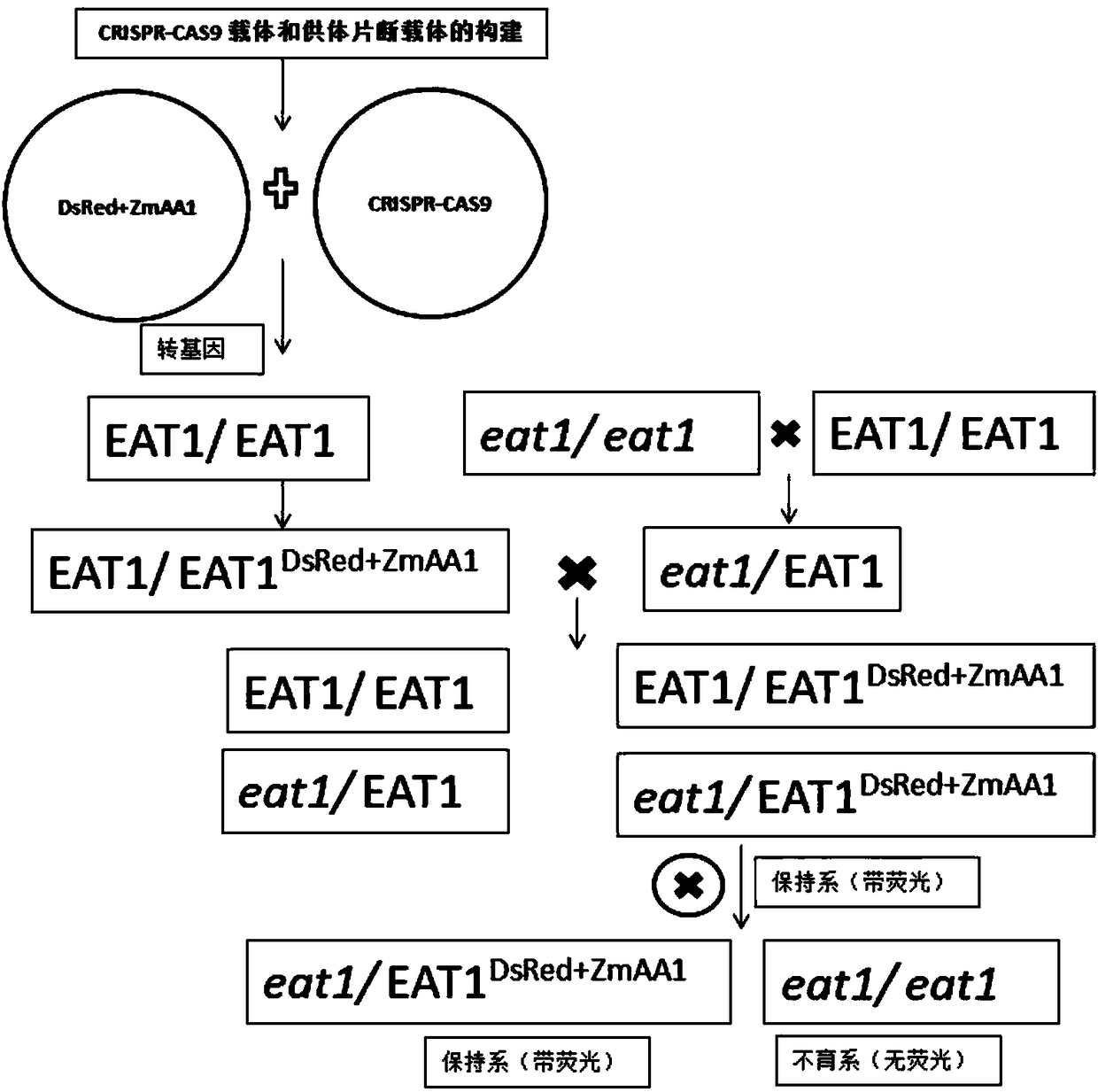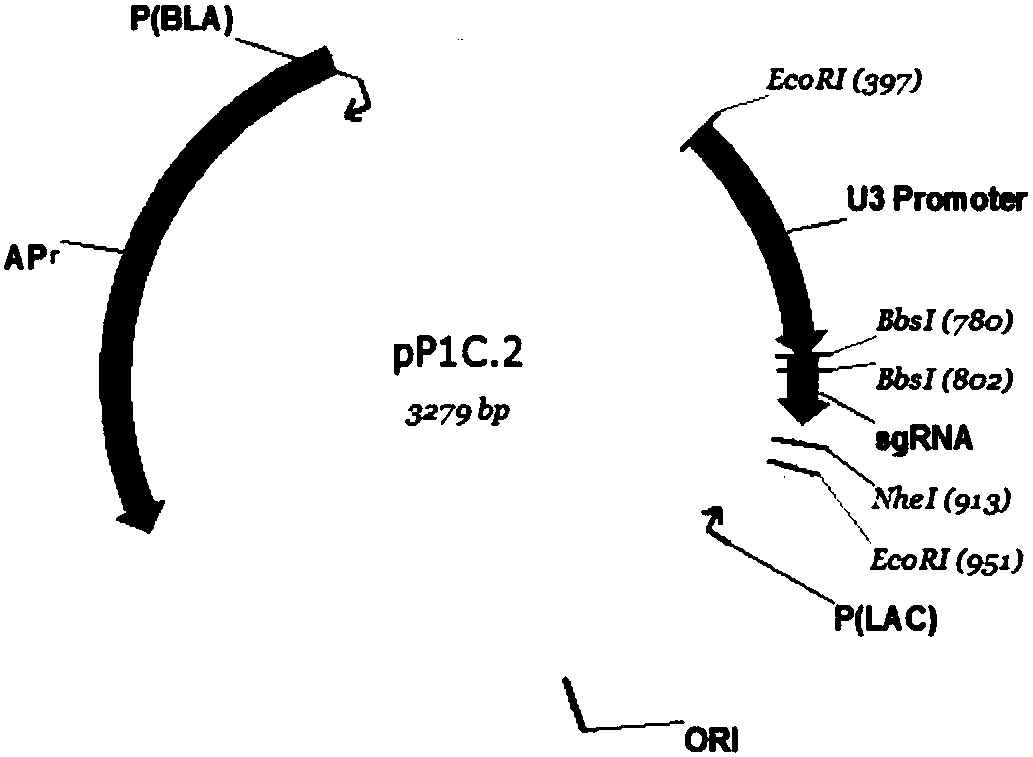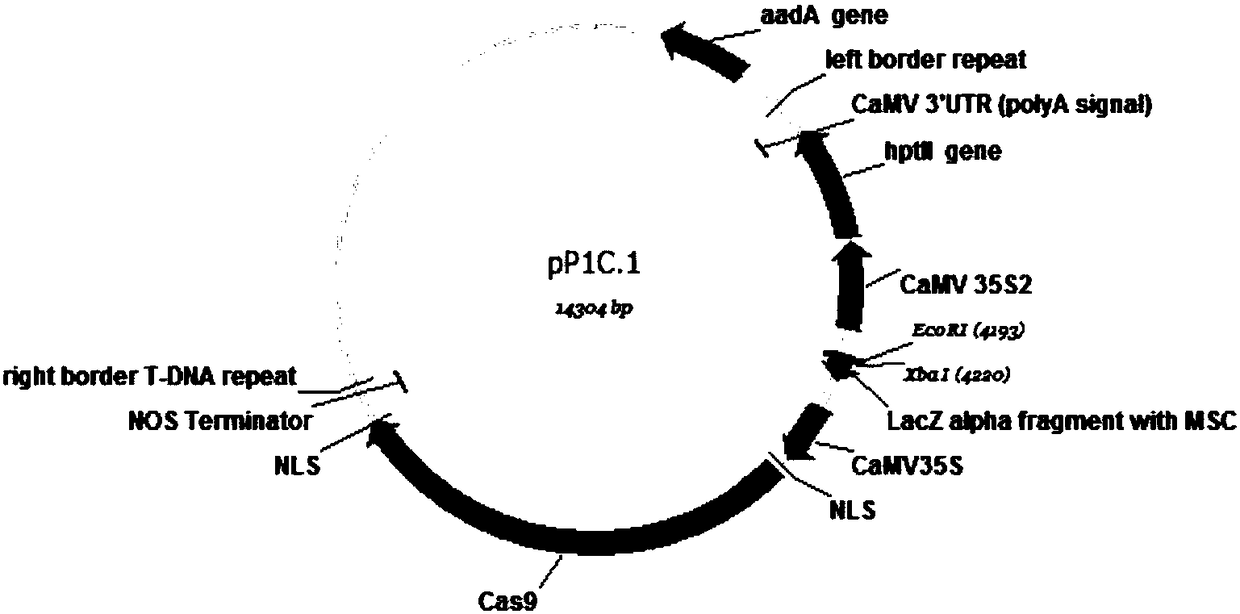The creation method and application of rice engineering maintainer line preventing gene drift
A technology of engineering maintainer and gene drift, which is applied in the fields of genetic engineering, application, plant gene improvement, etc. It can solve the problems of transformation receptor material limitation, pollen escape, target gene expression uncertainty, etc., and achieves low cost and convenient operation , The effect of avoiding the risk of genetically modified ecological safety
- Summary
- Abstract
- Description
- Claims
- Application Information
AI Technical Summary
Problems solved by technology
Method used
Image
Examples
Embodiment 1
[0093] Various rice tissue culture medium formulations
[0094] Induction medium NB: N6 massive salt, B5 trace salt, N6 iron salt, B5 vitamin, proline 0.5g / L, hydrolyzed casein 0.3g / L, BA 0.1mg / L, sucrose 33.5g / L, agar powder 8.5g / L, adjusted to pH 6.0
[0095] Subculture medium J3: MS massive salt, 10 times B5 trace salt, J3 iron salt FeSO 4 ·7H 2 O 41.8mg / L, Na 2 EDTA 55.9mg / L, DL vitamins (glycine 2.0mg / L, thiamine hydrochloride 1.0mg / L, pyridoxine hydrochloride 1.0mg / L, niacin 1.0mg / L, inositol 100mg / L), glutamine Ammonia 0.3g / L, proline 0.5g / L, 2,4-D 2.5mg / L, maltose 30g / L, agar powder 8.5g / L, adjust pH 6.0
[0096] Co-culture medium NBM: N6 large amount of salt, B5 trace salt, N6 iron salt, B5 vitamin, hydrolyzed casein 0.8g / L, 2,4-D 2.5mg / L, maltose 30g / L, agar powder 8.5g / L, Acetosyringone 0.1mM, adjust pH 5.6
[0097] Screening medium J3S: subculture medium J3, cephalosporin 500mg / L, carbapenicillin 400mg / L, hygromycin 50mg / L
[0098] Pre-differentiation medium...
Embodiment 2
[0120] Cloning and Ligation of Rice Gt1 Promoter
[0121] Using rice genomic DNA as a template, using primers GT1-F: 5-aaAAGCTTCACCCTCAATATTGG-3 (containing HindIII restriction site) (SEQ ID NO.5), GT1-R: 5-aaGGATCCGTTGTTGTAGGACTAATG-3 (containing BamH I restriction site point) (SEQ ID NO.6), the gene sequence of the Gt1 promoter is obtained by PCR cloning and amplification, and the base sequence of the Gt1 promoter is shown in SEQ ID NO.7, wherein,
[0122] The PCR amplification system and procedures are as follows:
[0123]
[0124]
[0125] PCR amplification reaction program: pre-denaturation at 94°C for 5 min; then denaturation at 94°C for 40 s; annealing at 52°C for 40 s; extension at 72°C for 2 min, a total of 35 reaction cycles were performed, and finally 10 min at 72°C.
[0126] The PCR results were detected by electrophoresis, and the target fragment was recovered and ligated with the pMD18-T cloning vector at 16°C. The ligation product was transformed into comp...
Embodiment 3
[0143] The targeting vector recombinant pP1C.1 and the donor vector pSB130M-DsRed-ZmAA1 were co-transformed into wild-type rice (genotype AA) by Agrobacterium-mediated transgenic method.
[0144] Agrobacterium-mediated transformation
[0145] Induction and subculture of rice callus
[0146] Select healthy grains and peel off the glumes, and place them in an incubator at 37°C overnight. After the seeds were taken out, put them into a sterilized Erlenmeyer flask, sterilize the surface with ethanol with a volume fraction of 75% for 5 minutes, rinse with sterile water once, disinfect with 0.1% HgCl for 12 minutes, rinse with sterile water for 5 times, and then put Put sodium hypochlorite stock solution for disinfection for 40 minutes, rinse with sterile water for 5 times, dry on sterilized filter paper, and then inoculate on induction medium (NB), and let half of the embryo contact the medium. 20 capsules per dish, cultured in the dark at 25-26°C to induce callus. After 20 days...
PUM
 Login to View More
Login to View More Abstract
Description
Claims
Application Information
 Login to View More
Login to View More - R&D
- Intellectual Property
- Life Sciences
- Materials
- Tech Scout
- Unparalleled Data Quality
- Higher Quality Content
- 60% Fewer Hallucinations
Browse by: Latest US Patents, China's latest patents, Technical Efficacy Thesaurus, Application Domain, Technology Topic, Popular Technical Reports.
© 2025 PatSnap. All rights reserved.Legal|Privacy policy|Modern Slavery Act Transparency Statement|Sitemap|About US| Contact US: help@patsnap.com



